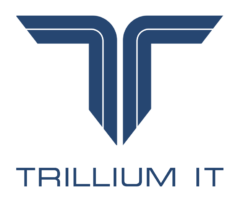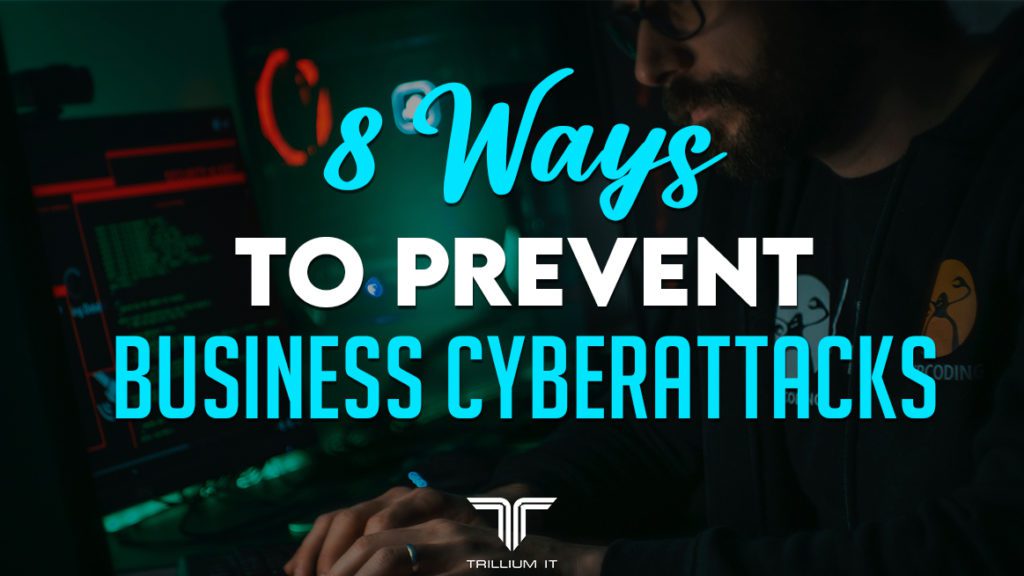Businesses are vulnerable to cyberattacks because technology is constantly evolving, and hackers recognize they stand to make a lot of money if their malicious schemes succeed.
Cybercriminals are constantly looking for gaps in organizations’ cybersecurity processes. Therefore both large corporations and small and medium-sized firms (SMEs) must take proactive measures to combat cyberattacks.
A successful breach could result in significant data loss and the theft of valuable client, employee, and customer information. Malware, Trojan horses, botnets, and distributed denial-of-service (DDoS) assaults are just a few of the digital tools available to hackers to disrupt business operations. It can be challenging to restore a system’s average performance after damage. Even if you have the best antivirus software, you must take extra precautions to protect your enterprise.
In light of this, we propose eight practical methods for protecting your company from cyberattacks.
8 Steps to Prevent Business Cyberattacks

Cyberattacks are a constant threat to businesses, but there are things you can do to defend yourself. Here are some tips for avoiding business-related cyberattacks:
1. Install Antivirus and Endpoint Security
Data loss is more expensive than preventing it using cutting-edge security solutions. Antivirus software and endpoint protection services provide good value for money by constructing a firewall to protect your PCs from viruses and brute-force attacks. To prevent criminals from breaching your company’s internet security, they scan your PCs, mobile devices, and removable media for malware.
Using antivirus software effectively necessitates keeping it up to date and setting the protection level to the highest. See the antivirus software provider’s newsletters for more information and analysis on cybercrime patterns and current internet risks, or visit its blog.
Endpoint security refers to the process of safeguarding all user devices connected to the enterprise secure network design, such as servers, wearables, and mobile phones. Endpoint Protection Platforms (EPPs) can encrypt data to prevent unwanted access, detect internet threats and login attempts, and manage and upgrade specific devices remotely.
2. Outsourced Protection Needs Cybersecurity
Smaller firms may have cybersecurity difficulties since their IT departments can’t afford internet security expertise. You can receive skilled and dedicated IT professionals assisting you in monitoring your network, assessing your susceptibility to online threats, and defending against various types of modern cyberattacks by outsourcing cybersecurity to specialized businesses.
Furthermore, outsourcing allows you to focus on your main business while knowing that professionals will provide layered protection for your organization and stay up to date on cyber threats.
Third-party cybersecurity companies will audit your cyber policies, safeguard your networks, update your gadgets, and develop spam-filtering software. They will also deploy firewalls for ongoing protection and deliver services around the clock.
3. Establish Online Safety Standards
Every organization needs a cybersecurity policy that outlines its rules for internet access, protects it from legal liabilities, and ensures customers a reliable and secure experience. The organization must implement secure transaction processing methods to safeguard its consumers against identity theft and financial loss.
Threats originate from competitors, business partners, former and present employees, cybercriminals, and inadequate internal cybersecurity policies. Corporate policies should govern how company equipment is used, how data is transferred securely, and how information is shared on websites and social media platforms. To maintain more information control, colleagues should refrain from giving their passwords to one another.
Finally, recommendations for timely system and software updates should be provided, as these protect against the most recent internet threats and vulnerabilities discovered by specialists.
4. Safeguard Employee Data
Hackers utilize social engineering to trick people into disclosing sensitive information using publicly available information. As a result, firms should take caution when revealing information about their operations and employees on the internet.
Unprotected data invite attackers to take advantage of it. To prevent cybercrime, loss, destruction, and natural disasters, businesses must keep sensitive data in a safe place and keep multiple backups. Because features that work well for one firm may not be suitable, select the data storage provider that best matches your needs.
It would help if you also considered installing a secure data storage system that encrypts and saves your data online in real-time.
5. Encrypt Online Data Transfers
To prevent attackers from intercepting your data during online uploads or file transfers, encrypt it beforehand or use a cloud storage provider that offers end-to-end encryption. Use software to encrypt data before uploading it to the internet. You must keep the decryption key private or risk losing your data.
Encrypt your network or pay for a VPN to protect online transactions and data transfers (VPN service). Organizations routinely gather and store identifiable personal information, which cybercriminals might use to jeopardize business data through identity theft further.
6. Teach Workers Online Safety
As a result of the COVID-19 pandemic, much less tech-savvy staff are now working remotely, exposing firms to attack. Employees may utilize unprotected public Wi-Fi networks while doing their tasks under hybrid working, which combines in-office and work-from-home activities.
Employees must receive up-to-date training on secure data transfer, avoiding unauthorized access to company networks, visiting risky websites, and falling prey to internet frauds. Phishing schemes are becoming more common in which thieves pose as legitimate businesses to gain employees’ personal information.
Employers must foster a culture where specialists regularly train employees about cybersecurity threats. Employees should be given the resources they need to manage a data breach and disclose potential threats as part of a cyber incident response strategy. Furthermore, advise staff to use caution when sharing personal or sensitive information, mainly if the request appears suspicious.
7. Use Difficult Passwords/Passphrases
To prevent unwanted access to their devices, employees should use strong passwords that include letters, numbers, and special characters, as well as multi-factor authentication. Passwords may be used by businesses to strengthen system security.
Passwords are becoming longer and more complicated, making it more difficult for hackers to access an account. They contain uppercase, lowercase, numbers, and special characters. Avoid using the same passwords or passes for multiple accounts, and remember to password-protect your Wi-Fi network.
Consider signing up for a reputable and secure password management service to simplify account access. Furthermore, certain password managers can generate secure passwords for you.
8. Conduct Frequent Cyber Security Audits
Waiting for an attack to put your security measures to the test is a formula for disaster. Review your firm’s cybersecurity strategy and conduct frequent audits of the software, systems, servers, and cloud infrastructure to ensure ultimate security. Access and download backed-up files to evaluate how the recovery procedure might work for your company.
Examine the backup files for corruption and correct any problems you find. Perform additional maintenance tasks, such as deleting unused applications to lessen the possibility of hackers stealing or destroying vital data from your computer. Contact law enforcement to learn more about ransomware, the dangerous virus used to steal data and extort money from victims. It will help you understand how to avoid it in the future.
Update all passwords and passcodes if a device is lost or stolen. Examine IoT-connected innovative equipment, such as temperature control devices to see what data they are gathering and whether it poses a risk to the organization.
Which Industries Are Most At Risk from Cyberattacks?
A record number of cyberattacks occurred in 2021. After the COVID-19 virus caused a significant increase in Internet traffic, hackers targeted industries that rely on online services and data storage. According to the FBI, following the implementation of COVID-19, there has been a 300 percent surge in cybercrime.
All firms are vulnerable to cyberattacks in today’s increasingly digital economy, but some industries are more vulnerable than others. This essay investigates six of the most vulnerable industries’ cyber threats and hacking challenges.
Small Businesses
Due to a lack of financial means to invest in cybersecurity, small firms are often an easy target for cybercriminals. According to the 2019 Verizon Data Breach Investigation Report, 43% of cyberattacks targeted small firms, making them the leading target of all assaults.
Small firms are most vulnerable to phishing-based attacks. An attacker impersonates a vendor or third party to fool consumers into clicking a hazardous link, downloading a malicious file, or supplying sensitive information.
Malware is the number two most dangerous to small businesses. Malware assaults can destroy a company’s equipment and provide hackers access to vital data, putting clients and employees at risk.
Healthcare
The number of cyberattacks in the healthcare industry is a big issue. Over 90% of healthcare firms have disclosed at least one security breach in the last three years.
The crisis escalated in 2020 as fraudsters took advantage of the COVID-19 pandemic’s increased vulnerabilities. Ransomware assaults account for one-third of all cyberattacks on healthcare firms since 2019.
Cybercriminals use ransomware to block access to data or services unless a ransom is paid. These attacks are a significant concern for healthcare institutions because they can disrupt essential procedures and jeopardize patient safety.
Government Agencies
Given the abundance of susceptible and individually identifiable information in government agency databases, it is not surprising that this sector is a popular target for hackers. Hackers employ their abilities to obtain access to secure networks and systems to steal data and information. It might jeopardize local and state governments, as well as people.
These risks have been costly. In 2020, 79 ransomware attacks on federal institutions in the United States cost $18.8 billion in recovery expenses and downtime. Even though ransomware causes most government breaches, only 38% of state and municipal personnel are trained.
Final Words
The ability to thwart a cyberattack is critical to your firm’s survival. Following a cyberattack, you must work with the appropriate authorities to rectify the issue and develop new steps to thwart future threats. It takes a significant amount of time, money, and effort.
If the organization loses client data or fails to promptly notify them of a breach, its reputation will suffer. Businesses that rely on your organization for operations may also suffer. Use the above strategies to defend your company, maintain your data, and keep your customers safe.
When you work with Trillium IT, you will have access to fully customized technological and security solutions! Invest in a secure network that is exclusive to your firm.



